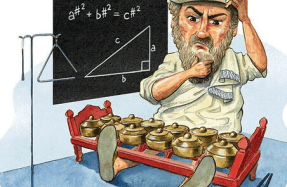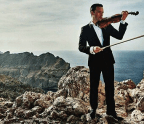
Albéniz
Iberia, Books 1-4
Nelson Goerner (piano)
Alpha Classics ALPHA 829 82:41 mins

Never judge a work by its title – musically, Iberia owes more to France than its Spanish namesake, although glimpses of composer Isaac Albéniz’s beloved homeland are ever on the horizon. The collection comprises 12 pieces, split equally into four books, created between 1905 and 1908. Both the structure and harmonic language has much in common with Debussy’s Images (1901-07) but Albéniz’s style is entirely his own, featuring the folkloric flavour imbued into his earlier works combined with a Lisztian virtuosity that he, quite reasonably, worried made it unplayable.
Not for pianists like Nelson Goerner. Having produced several excellent Chopin recordings, the Argentinian now demonstrates that he can handle Albéniz’s magnum opus. There is a whisper of a flamenco in the opening ‘Evocación’; a hint of a feast day in ‘El Puerto’. At first, ‘Rondeña’ feels like it might be a typical traditional dance, but after a few minutes the opening theme is virtually unidentifiable. Similarly, ‘El Albaicín’ – named after a gypsy quarter of Granada – establishes an apparently simplistic melody that quickly morphs into a complex Debussyian reverie. Goerner successfully points out the various landmarks – such as the Spanish jota motif that is woven across all four books – without distracting from the overall free-form shape of the music.
Goerner’s has much to recommend it, particularly the energy that comes from a concert recording. But Marc-André Hamelin’s




